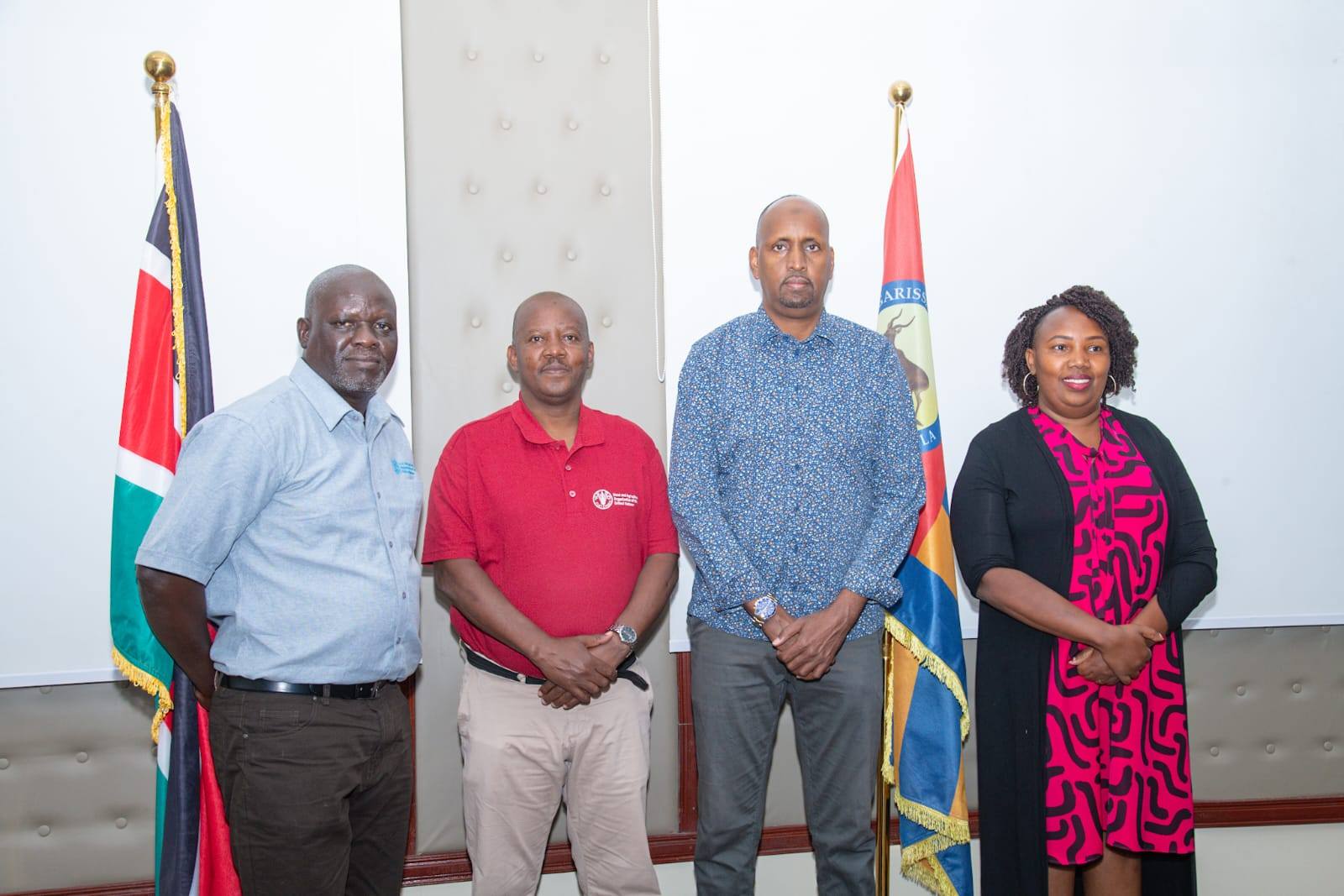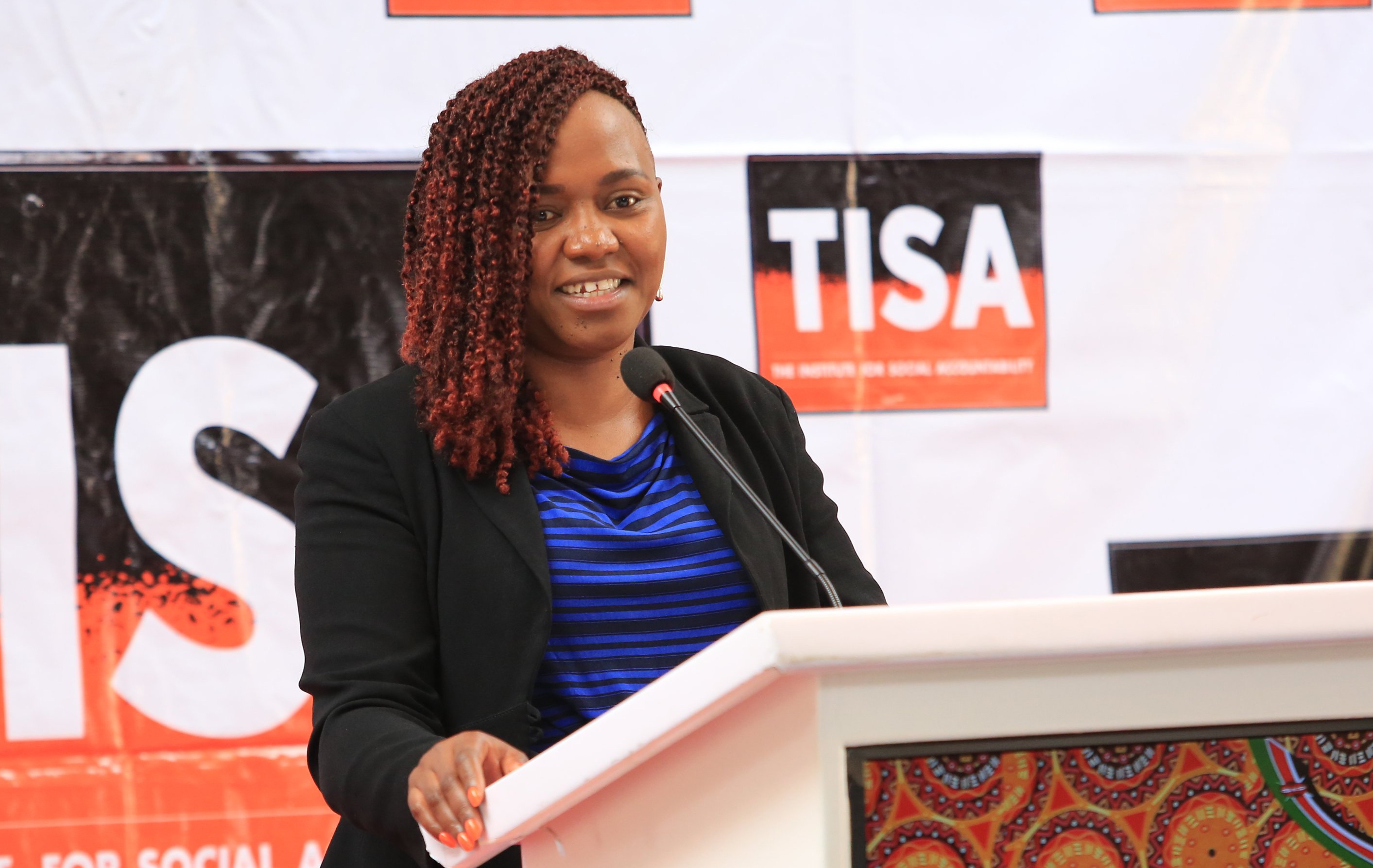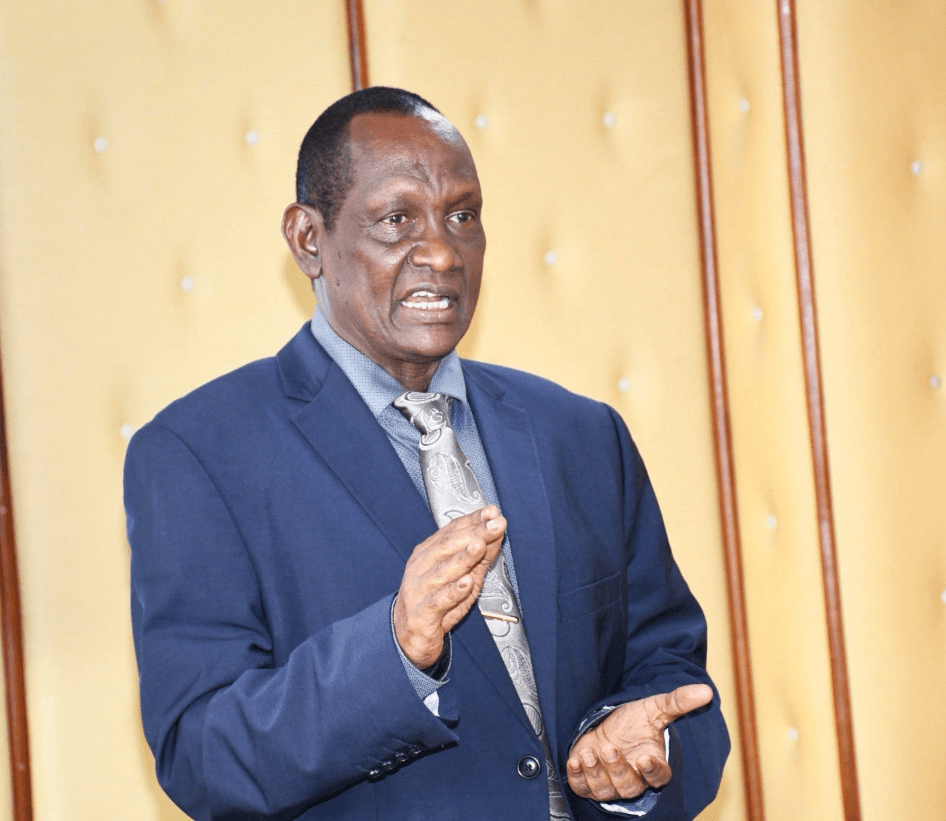
 Garissa county secretary Mohamud Mursal (second right) and Casha national coordinator Michael Ngutu (second left) with other
team members/STEPHEN ASTARIKO
Garissa county secretary Mohamud Mursal (second right) and Casha national coordinator Michael Ngutu (second left) with other
team members/STEPHEN ASTARIKOA new livestock-focused initiative aimed at empowering youth in Kenya’s arid and semi-arid lands has started in Garissa County.
The Creating Shared Value in the Livestock Sector with Young People in Kenya's Asals (Casha) is a five-year programme. It is supported by the Mastercard Foundation and implemented by the Food and Agriculture Organisation. It targets 15 counties nationwide, including Garissa, Tana River, Wajir and Mandera.
Casha seeks to integrate young people into livestock value chains by equipping them with technical skills, access to finance and market linkages. The project aims to benefit 300,000 young people, with at least 60,444 of them coming from the four Asal counties.
Casha national coordinator Michael Ngutu, who led a delegation to meet Garissa county secretary Mohamud Mursal, said the programme places a strong emphasis on the inclusion of women and persons with disabilities.
“Young people, especially women, face many barriers to entering the livestock economy. Casha is designed to break those barriers by creating opportunities, building skills and opening up value chains that can put them in charge of their future,” Ngutu said.
He said beneficiaries are projected to earn up to Sh17,500 per month by engaging in value chains such as red meat, poultry, dairy and beekeeping.
“Food security and community resilience begin with empowered individuals. An empowered youth population means stronger families, safer communities and a more prosperous county,” Ngutu added.
Mursal welcomed the initiative, calling it timely and transformative. He said the project’s goals align with the county's priorities, especially in addressing youth unemployment, food insecurity and the need to modernise traditional economic practices.
“Livestock has long been the backbone of Garissa’s economy, sustaining generations. But the challenges we face today—prolonged droughts, shrinking grazing lands, climate change and market instability—demand that we rethink our approach,” he said.
Mursal said transforming the sector doesn’t mean abandoning tradition, but rather evolving it to meet the demands of a changing world.
“Our young people must stop seeing livestock as a tradition to maintain, and begin seeing it as a business to build, a science to master, and a sector to modernise. They must embrace technology, adopt new methods and most importantly—be ready to lead,” he said.
Following the meeting, the Casha team held a workshop with county directors and officials from across the four target counties. The session included a presentation of the project's structure and a detailed roadmap for implementation.
Officials said the programme is poised to redefine youth engagement in the livestock sector, while promoting economic growth, social equity, and climate-smart livelihoods across Garissa and the wider Asal region.
Instant analysis
The Casha project marks a significant shift in how youth in Kenya’s Asal regions engage with the livestock sector. By framing livestock not just as tradition but as a viable business and career path, the initiative aims to transform mindsets and livelihoods. With a focus on women and persons with disabilities, the project promotes inclusive economic growth while addressing chronic challenges like unemployment and food insecurity. The emphasis on skills, finance and market access—especially in value chains like red meat, dairy, poultry and beekeeping—positions Casha as a timely, climate-smart solution for building resilience and unlocking potential across the Asal counties.















